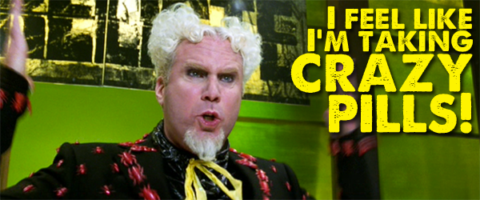In The Line, Jen Gerson considers the widely predicted epidemic of mental health issues the experts thought would follow the Wuhan Coronavirus pandemic as it faded:
That warning doesn’t seem to have panned out, exactly. As this more recent op-ed in the Atlantic pointed out, rates of depression and anxiety spiked at the beginning of the pandemic, but then receded. Rates of life satisfaction are near pre-pandemic norms. And the suicide rate has actually declined for reasons no one can quite pin.
“The pandemic has been a test of the global psychological immune system, which appears more robust than we would have guessed. When familiar sources of enjoyment evaporated in the spring of 2020, people got creative. They participated in drive-by birthday parties, mutual-assistance groups, virtual cocktail evenings with old friends, and nightly cheers for health-care workers. Some people got really good at baking,” the authors wrote, optimistically.
I think they’re wrong. Or, rather, I think we proved to be resilient in all the ways that the authors were looking at, and far more fragile in the ways they weren’t.
I think we’re in the middle of the mental-health pandemic right now; I think we’re in it so deep that we can’t even see it anymore. And I think we can’t see it because the crisis is not taking the form we expected it to take.
We expected the post-pandemic mental-health crisis to look the way they used to look — invisible. The depressed sister who hasn’t called for months. The anxiety-ridden best friend who drowns her tics in pills and alcohol. For the majority of the population that doesn’t suffer from a diagnosable mental-health issue, mental-health crises are often hidden. We expected a traumatic post-pandemic mental-health crisis to look a lot like this — another person’s problem — but on a grander scale.
This assumption leaves our entire framework with a missing link. A mental-health pandemic isn’t necessarily going to show up on a self-reported survey about anxiety and depression levels.
It’s going to show up in behaviour — and often behaviour that can be rationalized.
Because crazy people don’t think they’re crazy. You can’t see it when you’re in it.
Look around; are people acting normal lately? Think of the protests we saw during the election, or the anti-vaccine marches through our downtown cores. Think of the mom wearing two masks who screamed because your kid got too close on the playground — was that rational, grounded, sane behaviour?
Something is happening to a lot of people, and you see it in both the COVID deniers and also those who have made a religion out of the dangers of the disease. There are people out there that still can’t collect the mail without taking “precautions”. How about the people who are still sanitizing their groceries? That might have been reasonable in the Spring of 2020, when we weren’t sure how COVID spread. Now it looks a lot more like OCD.
Have you not noticed that some of the most brilliant people, after spending months devoid of much human contact, are now acting like raving loons on outlets like Twitter? Increased dependency on a gamified and polarizing social media for socialization during periods of extended isolation seems to have broken the ability to think clearly or behave civilly. This is hard to quantify, but I can’t be the only one to feel as if social media has grown palpably worse over the last year.




